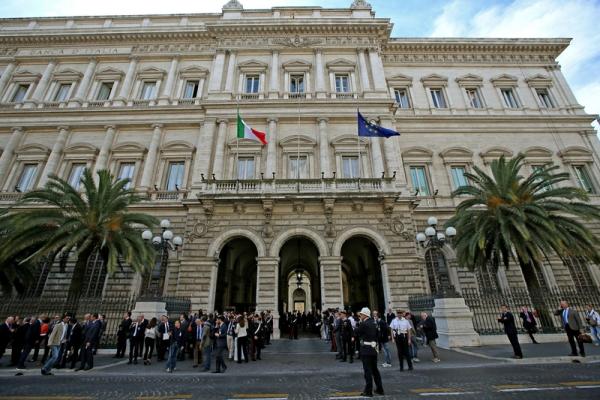(Bloomberg) -- Italian Finance Minister Giovanni Tria is making a last-ditch attempt to placate the European Commission over his country’s 2019 budget, considering a lower economic growth target while sticking to a disputed deficit, according to media reports.
With a Tuesday deadline looming, Italy may set a growth target of 1 percent, down from a previous target of 1.5 percent, newspaper La Repubblica reported Sunday, citing unidentified Treasury officials. This would compare with the commission’s own forecast of 1.2 percent growth.
The target deficit of 2.4 percent of gross domestic product would remain unchanged, Repubblica said, adding that Tria discussed the budget with Bank of Italy Governor Ignazio Visco on Saturday.
The commission says a 2.4-percent deficit is too expansive, while predicting the actual gap will be an even wider 2.9 percent, grazing the European Union’s 3 percent limit. In an unprecedented rebuke, the commission demanded the populist government submit a revised budget by Tuesday.
Under Pressure
Tria is under pressure from deputy premiers Luigi Di Maio and Matteo Salvini, who insist on fulfilling at least part of their election campaign promises to deliver a citizen’s basic income for the poor, tax cuts and a lower retirement age.
Tria and Visco publicly sparred over the spending boost on Oct. 31, with the governor cautioning that the growth divide between Italy and the rest of the euro area “is a structural problem that can’t be solved by monetary stabilization policies or by expanding the government’s budget.” Tria retorted that the spending plans aim to reduce that gap.
Ahead of the Tuesday deadline, EC Vice President Valdis Dombrovskis warned that the commission is considering a possible excessive deficit procedure for Italy -- which would require the country to reduce its deficit by a set deadline or risk sanctions of up to 0.2 percent of economic output.
“Damages to the economy can be done quickly,” Dombrovskis said in an interview with La Stampa published Saturday. “But then it takes years to repair them.” The government’s strategies “are slowing down the Italian economy further,” Dombrovskis said.
Tria has said that meeting the commission’s demands would be “suicide” and has called its economic forecasts “a technical fault.” Dombrovskis said “slogans cannot negate economic reality.”
